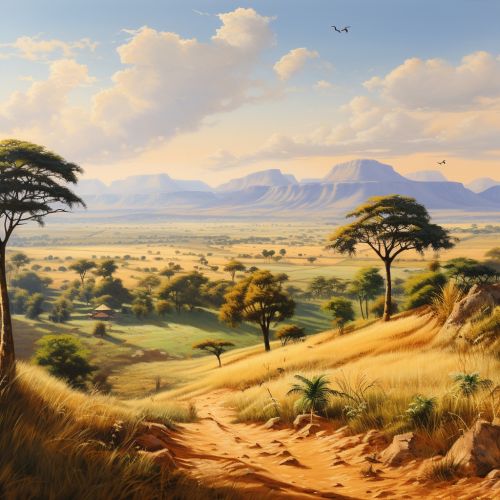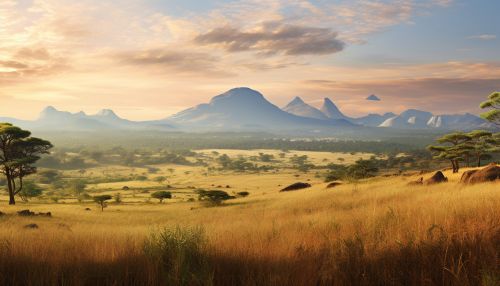Geography of Africa
Geography
Africa, the world's second-largest and second-most populous continent, is located primarily in the Eastern and Northern Hemispheres. It is surrounded by the Mediterranean to the north, the Isthmus of Suez and the Red Sea to the northeast, the Indian Ocean to the southeast, and the Atlantic Ocean to the west. The continent covers 30.37 million square kilometers or 11.7 million square miles, accounting for about 20.4% of the Earth's total land area.


Physical Geography
Africa's geography is incredibly diverse, with landscapes ranging from arid deserts to lush rainforests, and from towering mountains to expansive savannahs. The continent is known for its vast physical features, such as the Sahara Desert, the world's largest hot desert, the Nile River, the world's longest river, and the Great Rift Valley, one of the world's most significant geological features.
Climate
Africa's climate varies greatly, from the arid desert of the Sahara to the tropical rainforests in Central Africa to the temperate landscapes of South Africa. This diversity in climate is primarily due to the continent's location straddling the equator and extending into both the northern and southern hemispheres.
Flora and Fauna
Africa is home to a diverse range of flora and fauna. The continent's various ecosystems, from its deserts to its rainforests, support a wide array of plant and animal life. Some of the most well-known African animals include the African elephant, the lion, the rhinoceros, and the cheetah.
Human Geography
Africa is home to more than 1.3 billion people, making it the second-most populous continent after Asia. The continent is known for its cultural diversity, with thousands of distinct ethnic groups and languages.
Population
Africa's population is diverse and rapidly growing. The continent is home to over 1.3 billion people, representing about 16% of the world's total population. The most populous African country is Nigeria, with over 200 million residents.
Languages
There are thousands of languages spoken across Africa, reflecting the continent's rich cultural diversity. These languages fall into several major families, including Afroasiatic, Nilo-Saharan, Niger-Congo, and Khoisan.
Economy
Africa's economy is diverse, with agriculture, mining, and services being the major sectors. The continent is rich in natural resources, including oil, gold, diamonds, and cocoa. However, economic development varies greatly across the continent.
